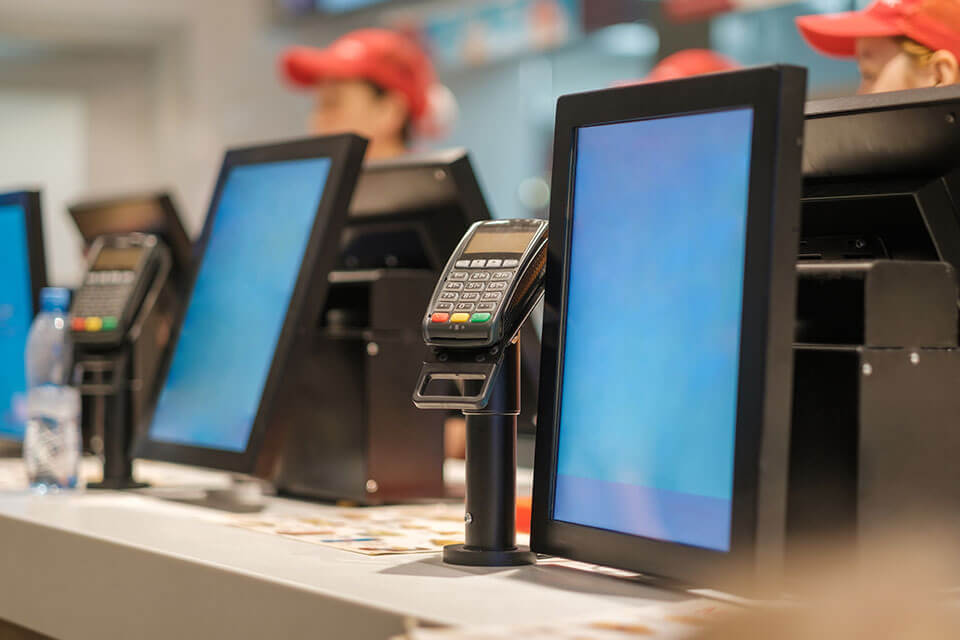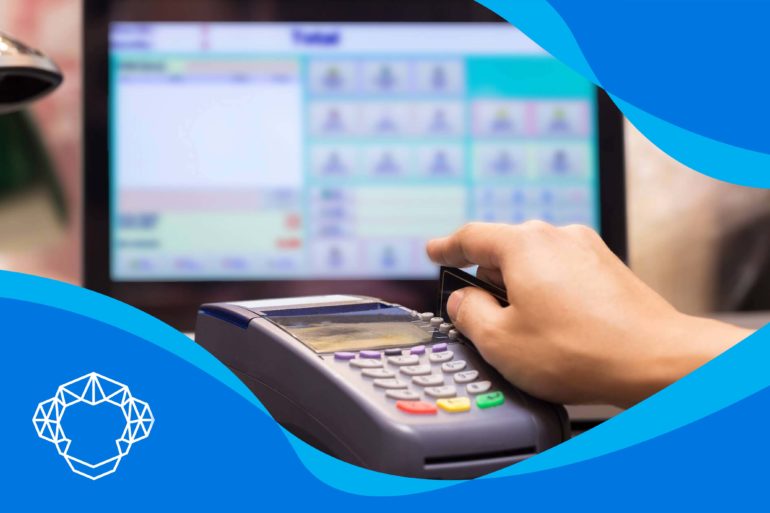If you are new both to the e-commerce and cashless payments world, but you want to expand your enterprise and draw new customers, you should get accustomed to the terminology. At first, it may seem that payment gateway vs. merchant account are similar things or that your business can run without one of them. But in reality, you will need to use both.
In order to see your enterprise grow, you will need to be on the lookout for the best credit card processing services for small businesses. But before you pick the first among the many credit card processing companies you stumble upon, it’s essential to have at least some understanding of how cc processing works. And most notably, figure out the roles of merchant account vs. payment gateway.
Payment Gateway vs. Merchant Account
Cashless payments are an important part of today’s shopping world. In fact, according to Federal Reserve data, more than 80% of American adult citizens have owned at least one credit card in 2020. That means one thing – if you haven’t already incorporated software and hardware that accepts and processes cashless paying methods, it’s the best you can do for your enterprise.
Before applying for a merchant’s account, it’s important to understand some basics and clarify the terms related to cashless payments. It’s hard to wrap your head around these phrases, especially if you’re already in talks with a processor, and they keep bombarding you with things you have difficulty understanding. But the more you learn about the process itself, the easier it will become for you to grasp a larger market share. Knowledge is power, and when it comes to any type of small business idea, it can only mean customer base growth and bigger sales.

Let’s Explore the Essentials of Credit Card Services
Although service for merchants can be broadly defined as a wide range of different financial solutions directed toward enterprises, let’s consider what merchant services are and what they mainly focus on. The term relates to all the different solutions that allow an enterprise to accept and process many types of cashless paying. In particular, it refers to accepting transactions done with all types of cards. And both the merchant account and the payment gateway are essential parts of this process.
Understanding the Merchant Account Is Important
Let’s interpret an important term in banking – an account. It is an arrangement between a customer and a financial institution (it can be a bank or a credit union). In this arrangement, the institution accepts and holds the financial assets of a customer at their discretion. A merchant account is connected to an enterprise. It enables different types of businesses to accept and process payments where cash is not present, and it typically means accepting different types of cards.
Are These Accounts the Same as Business Accounts?
These two types of accounts are connected to an enterprise. However, they are not one and the same. Merchant accounts are required and strictly limited to accepting non-cash paying options, and that means you as an enterprise owner can not deposit nor withdraw funds from them. On the other hand, business accounts are required for running an enterprise on a daily basis. Through it, you take care of transactions toward employees and contractors, as well as accepting hard cash transfers (essential for a cash discount program, too) and transactions. You can also use it to store funds and manage subscriptions.
What About Offshoring?
Offshoring is a common term among internationally based businesses. It’s a practice where you establish some of the processes connected to your enterprise abroad to lower the costs. So, how do the merchant services work in these cases? If you run an international enterprise, it’s vital to withdraw the funds to a business account that supports any type of activities conducted worldwide.
How Does It Work?
Before an enterprise can start accepting non-cash payments, they need to enter a contract with an acquiring bank for merchants or, simply put – a credit card processing company. This financial institution will, in turn, open, manage, and control specialized accounts. Once the non-cash payments (such as card not present transaction or other) are processed, the funds will be deposited into the said account. From that point, the enterprise takes care of the funds by transferring them to the business accounts.
What Is a Payment Gateway?
The short answer is that a payment gateway is a technology that enables merchants to accept and process non-cash payment options. There are two applications to this technology, depending on the way you run your enterprise. In a brick-and-mortar enterprise, cashless options are accepted through free POS systems that act as gateways. When it comes to online stores, eCommerce payment options include gateways, too, to be able to process the transaction.
Simply put, it is a customer-faced technology where the information and data from the cardholder are entered and saved. However, it shouldn’t be mistaken for a processor, as these are two different terms.
A Step-By-Step Through the Gateway Process
No matter which kind of e-commerce business models you are looking into or whether you only want to work with a merchant processing company to apply cashless paying options to your enterprise, you will need a gateway. The process goes like this:
- A customer picks a product you are offering, whether it’s in-store or online.
- They then proceed to the checkout and prepare a cashless option for paying.
- Once the transaction is started, the gateway technology connects the shopper’s bank or the issuing institution to the merchant’s acquiring bank.
- It takes only milliseconds to collect the data, store it, and verify all the information required to process the transaction.
- The next step is confirmation of the sufficient funds in the buyer’s bank needed to pay for the good or service.
- The moment everything is confirmed, required funds are then transferred to a merchant’s account you own.
Since the gateway will be able to access all the required information off of a customer’s plastic, it’s essential that the data stays secure. That’s why your processor needs to be PCI compliant to be able to counter and avoid any theft.
Not All Merchant Accounts Are the Same
Now that you understand that opening a specialized account for accepting non-cash paying options is essential let’s consider what differentiates various types of these accounts. There are three primary things that can differentiate them:
- Some accounts are created with a global market in mind. For instance, accepting only one type of currency (such as USD) will limit your business’s access to only selected markets. If your processor can set you up so that your enterprise accepts multiple currencies, you can expect to gain recognition and grow globally.
- When it comes to underwriting, not all accounts carry the same risk for the transactions. If your processor offers you a customized underwriting process, it will lead to fewer issues down the road and avoid unexpected shut down of the account, thus paying an early termination fee.
- One of the mistakes business owners make is not getting properly informed when setting up their accounts. Some of them are shared (aggregated,) which means they are grouped together with other businesses serviced by a gateway. It also means that your risk profile is blended with others in one pool. That may be convenient for some but not so much for others, so it’s important to check this information before signing up.
Some Gateways May Differ From the Others
A technology that builds a processing bridge between consumers not paying with cash and the enterprise that accepts these forms of payments is something that can be said for every payment gateway. But these are only the basics of gateways, and many of them offer even more. There are other functions and a plethora of different services surrounding the processing of transactions.
Some of Them Can Accept Multiple Options for Paying
When it comes to cashless methods with which customers can buy goods, credit and debit cards are not the only options. There are many buyers who prefer to use other methods, such as eWallets, or direct bank or debit transferring. These methods are especially handy if you are offering products around the world. That means that basic gateways won’t cut it for you. Luckily, there are many providers that offer merchant services and credit card processing with support for a variety of options. Incorporating multiple paying methods will also help you attract and keep a greater number of customers.
Some Also Offer Fraud Protection Services
One of the greatest risks for eCommerce businesses is a potential attack that can come with each accepted transaction. Another thing you should be wary of is for fraud levels to get out of control because it will negatively impact your enterprise. You may suffer from chargeback fees and penalties, lost goods, and experience harm done to your reputation as an enterprise. Finding providers which offer gateways with powerful credit card fraud prevention and detection tools can only be beneficial, no matter the cost.
Use Recurring Billing Tools to Your Advantage
You can see different businesses that offer a subscription model to sell goods at every turn. If you haven’t considered it before, keep in mind that gateways that manage automated recurring payments will make your life easier. These gateways manage automated billing, send reminders to customers, create customizable billing plans, and update subscription information for consumers automatically.
Being Provided With Detailed Analytics Is Always Beneficial
You can get merchant statements from many providers, but detailed data can only serve and help your enterprise to become even better. You will be able to make more informed decisions by having all the information listed. That’s why when you shop for the best processors, keep in mind that they should allow you access to different analytics and reports. With such data, you can get a complete picture of where the process is successful and where it should be improved.

Don’t Mistake Gateways For Processors
When it comes to accepting cashless options for paying, there are several key links in the whole process. So, what makes up the process chain? Merchants, their customers, issuing banks or entities (which issued the cards,) and the acquiring financial institutions. But they can not be connected without processors and gateways.
Gateway vs. Processor – The Basics
So, what exactly does a payment processor do? A processor company serves merchants and provides a direct connection between them and card networks such as MasterCard or Visa. The gateways are the technology used to connect merchants with processors. Once the connection is made, the next step is making the connection between your enterprise and card networks.

Apply for Credit Card Processing Services Today
Once you understand each part of the process, you are free to contact us and get informed on all the details and benefits of non-cash transactions. We can discuss the average credit card processing fees and also explain to you how the merchant services rates work.
Don’t hesitate to give us a call because, after all, there’s no better way for your enterprise to grow and drive your sales than to partner up with the right people. We offer transparent costs and a better solution for any enterprise. With us, you can cut down on different fees from 20% to 50%.





